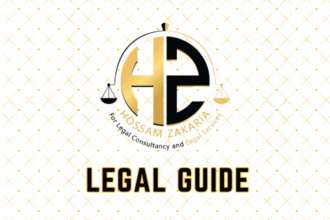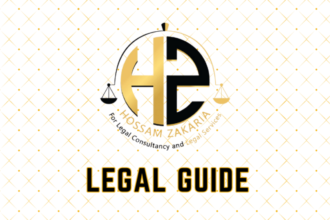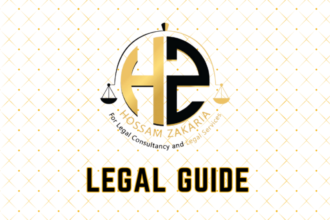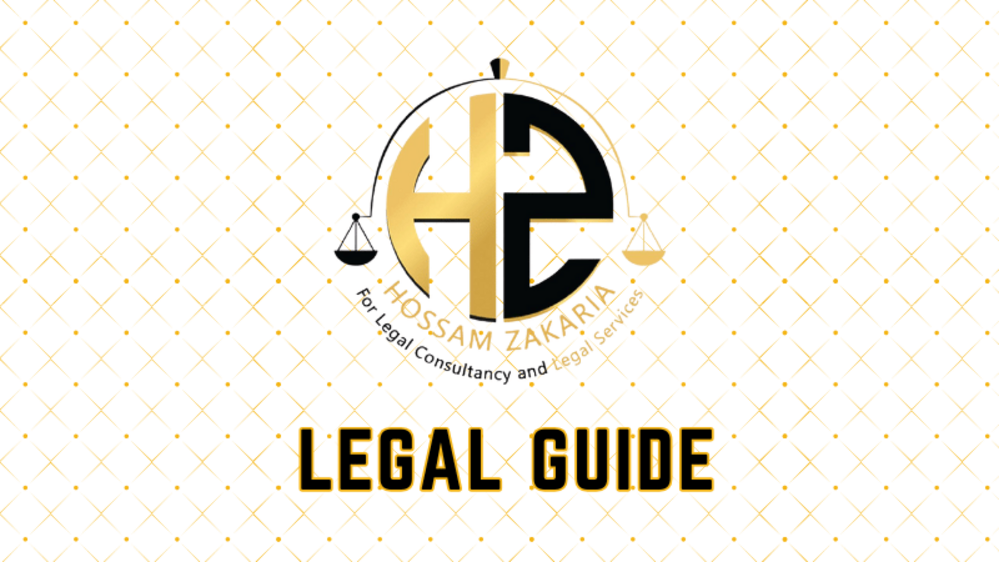Introduction: The Evolving Landscape of Sharia Compliance in UAE Islamic Banking
In recent years, the United Arab Emirates has continued to affirm its role as a global hub for Islamic finance. The strategic ambitions underpinned by ‘UAE Vision 2031’ and the nation’s desire to support ethical, sustainable banking have encouraged lasting commitment to robust Sharia compliance. With 2025 approaching, a suite of legal reforms, regulatory updates, and government-driven initiatives make it imperative for financial institutions, corporates, and advisory professionals to stay at the forefront of these developments. This article provides in-depth legal analysis, contextual interpretation, and practical recommendations tailored to the UAE’s contemporary legal framework—particularly in light of fresh updates impacting Sharia compliance in Islamic banking. For executives, legal practitioners, compliance officers, and HR managers, strategic understanding of these changes is critical to ensure lawful operations, maintain market reputation, and deliver customer trust in an increasingly regulated environment.
Table of Contents
1. Sharia Compliance in Islamic Banking: Legal Overview
2. Core Legislation: UAE Federal Decrees, Cabinet Resolutions & Supervisory Directives
3. The Sharia Governance & Compliance Framework: Key Elements & 2025 Updates
4. Comparative Overview: Past vs. Present Legal Requirements
5. Real-World Application & Case Studies
6. Legal Risks of Non-Compliance and Strategic Compliance Measures
7. Forward Look: Navigating the Evolving Landscape in 2025 and Beyond
8. Conclusion and Proactive Recommendations
1. Sharia Compliance in Islamic Banking: Legal Overview
The central pillar of Islamic banking is unwavering adherence to Sharia principles, including the prohibition of usury (riba), uncertainty (gharar), and the financing of prohibited industries. Adherence is more than religious observance; it is a binding legal obligation in the UAE, subject to regular supervision and robust enforcement. As per the UAE Ministry of Justice, the incorporation of Sharia tenets extends to all licensed Islamic banks and windows, affecting products, operational policies, and internal governance. The prevailing legislative framework draws on:
- Federal Law No. (6) of 1985 Concerning Islamic Banks, Financial Institutions, and Investment Companies;
- Recent enhancement by Federal Decree-Law No. (14) of 2018 and its amendments in 2022 and 2024;
- UAE Central Bank Regulations regarding corporate governance and Islamic financial services;
- Enabling regulations from the Dubai Islamic Economy Development Centre and UAE Cabinet Resolutions pertaining to Sharia compliance functions.
The increasing sophistication of the UAE’s banking sector—and the growing role of fintech—require new solutions, controls, and competencies to maintain compliance and competitiveness.
2. Core Legislation: UAE Federal Decrees, Cabinet Resolutions & Supervisory Directives
Federal Law No. (6) of 1985: The Foundation
This law established the legal architecture for Islamic banking in the UAE. It mandates banks to operate in accordance with Sharia, with oversight from dedicated boards. Key legal requirements include:
- Formation of an independent Internal Sharia Supervisory Committee (ISSC);
- Mandatory annual Sharia audits and compliance reports;
- Obligatory transparency to clients and shareholders regarding Sharia compliance status.
Federal Decree-Law No. (14) of 2018 (amended 2022, 2024): Contemporary Provisions
The more recent Decree-Law enhanced regulatory scrutiny and introduced new requirements for transparency, risk management, and reporting standards. As per UAE Central Bank regulations, banks must demonstrate proactive Sharia governance and maintain comprehensive internal controls, including:
- Appointment of qualified Sharia scholars to the ISSC;
- Standardisation of Sharia decision-making across group entities;
- Integration of compliance with UAE’s financial crime regulations (AML/CFT) within a Sharia-compliant context.
Cabinet Resolution No. (15) of 2018 and Central Bank Circulars (2023–2024)
These instruments introduced enhanced administrative penalties for breaches, specific audit obligations, and a mechanism for dispute resolution between banks and clients on Sharia grounds.
Emirates’ Own Regulations
DIFC and ADGM, as internationally recognized financial free zones, operate parallel legal frameworks, but broadly align with federal mandates while incorporating specific Sharia-compliant standards, particularly for Sukuk and Islamic fintech products.
3. The Sharia Governance & Compliance Framework: Key Elements & 2025 Updates
Internal Sharia Supervisory Committees (ISSC): Roles and Responsibilities
All UAE Islamic banks must appoint an autonomous ISSC composed of qualified scholars pursuant to Central Bank guidance. Core duties include:
- Reviewing and certifying all products, contracts, and policies;
- Overseeing Sharia-compliant product innovation (e.g., Islamic digital banking);
- Conducting ongoing monitoring and internal audits;
- Advising management on the impact of new regulations.
External Sharia Audit and Reporting
External Sharia audits, as demanded more strictly post-2022 amendments, play a critical role in assuring transparency, exposing systemic issues, and satisfying regulator and stakeholder expectations.
Recent 2025 Updates: Regulatory Emphasis on Accountability, Technology, and ESG
- Greater scrutiny on fintech and smart contracts—mandating prior Sharia approvals;
- Enhanced ESG (Environmental, Social, Governance) reporting for Islamic banks, aligning with UAE’s sustainable finance goals;
- Tighter cross-border transaction controls to combat financial crime without conflicting with Islamic precepts;
- Broader, more frequent disclosure requirements to Central Bank and public.
Visual suggestion: Table — Key Components of a Strong Sharia Governance Framework (2025)
| Component | Key Legal Requirement | Consultancy Insight |
|---|---|---|
| ISSC Appointment | At least 3 certified scholars, conflict-free | Rotate biannually, ensure sector-wide expertise |
| Product Certification | Mandatory pre-approval before market offering | Engage scholars early for fintech innovation |
| External Audit | Annual, independent Sharia compliance verification | Integrate audit with financial compliance reviews |
| Training & Awareness | Bank-wide staff Sharia compliance training | Use scenario-based, role-specific modules |
4. Comparative Overview: Past vs. Present Legal Requirements
For decision-makers, understanding the regulatory evolution is critical. Below, we compare legacy and current frameworks:
| Regulatory Area | Pre-2022 Framework | 2024/2025 Updated Requirements |
|---|---|---|
| ISSC Structure | Minimum of 2 scholars, part-time allowed | Minimum 3 full-time scholars, independence enforced |
| Product Approval | Post-launch review possible | Compulsory pre-launch approval by ISSC |
| Audit Frequency | Annual external review | Semi-annual review, enhanced Central Bank reporting |
| ESG Reporting | Not mandated | Annual, integrated with Sharia and financial disclosures |
| Technology Control | Limited digital focus | Mandatory review of fintech/digital products for compliance |
5. Real-World Application & Case Studies
Case Study 1: Launching a Sharia-Compliant Digital Banking App
Scenario: A UAE Islamic bank seeks to launch a new mobile banking platform offering instant Murabaha financing. The ISSC must:
- Review platform architecture to confirm prohibition of riba;
- Vet smart contract logic to ensure Gharar is absent in auto-generated contracts;
- Advise on transparent customer disclosures, especially for digital terms and conditions.
Practical Insight: Early ISSC involvement in system design helps preempt costly reengineering and regulatory delays, a lesson reinforced in Central Bank Circular (No. 123/2024).
Case Study 2: Cross-Border Sukuk Issuance
Scenario: An Emirati bank plans a Sukuk issuance in overseas markets. With new 2025 rules, the bank must:
- Obtain pre-issuance Sharia certification applicable in all target jurisdictions;
- Disclose Sharia governance structures in prospectuses as mandated by UAE and international law;
- Harmonize risk disclosures relevant to Islamic (Sharia) and conventional standards.
Consultancy Perspective: Multi-jurisdictional Sharia certification process should anticipate regulatory variances, with early legal planning to avoid transaction delays.
6. Legal Risks of Non-Compliance and Strategic Compliance Measures
Risks & Penalties
- Significant administrative fines under Cabinet Resolution No. (15) of 2018 (up to AED 10 million per violation);
- Imposed limitations or suspension of offending product lines by the UAE Central Bank;
- Potential criminal liability for wilful circumvention of Sharia compliance mechanisms;
- Heightened risk of civil litigation from affected clients or counterparties;
- Severe reputational damage, loss of institutional trust, and market exclusion.
Suggested Visual: Penalty Comparison Chart — Pre-2022 vs. Post-2022
| Year | Max Fine Per Violation | Additional Penalties |
|---|---|---|
| 2018–2021 | AED 1 million | Public warning |
| 2022–2025 | AED 10 million | Product suspension, potential criminal charges |
Best Practice Compliance Checklist (2025)
| Task | Legal Source | Consultancy Recommendation |
|---|---|---|
| ISSC Appointments | Central Bank Circular 12/2022 | Conduct independent credential screening |
| Sharia Audit Scheduling | Federal Decree-Law No. 14/2018 | Automate reminders and integrate with ISO controls |
| ESG-Sharia Reports | Cabinet Resolution No. 15/2018 | Seek multi-disciplinary input (legal, Sharia, ESG) |
| Employee Training | UAE Central Bank Guidelines 2023 | Mandate annual certification for all staff |
7. Forward Look: Navigating the Evolving Landscape in 2025 and Beyond
As Islamic banking continues to innovate, legal compliance must keep pace. The interplay between technology, sustainable finance, and regulatory expectations is set to intensify. Key forward-looking trends and implications include:
- Fintech Integration: Smart contracts, AI, and blockchain present opportunities and compliance risks. Proactive Sharia screening remains non-negotiable.
- Sustainability: ESG-focused Islamic banking—integrating faith-based and ethical investing—will be prioritized in audit and licensing reviews.
- Cross-Border Harmonization: Growing need for legal teams and ISSCs to liaise on multi-jurisdictional compliance amid GCC-wide financial convergence.
- Human Expertise: Demand for specialist Sharia finance lawyers and certified scholars will rise as compliance complexity increases.
8. Conclusion and Proactive Recommendations
The UAE’s comprehensive enhancements to the Sharia compliance regime in Islamic banking affirm its leadership in Islamic finance. For business leaders and practitioners, full-spectrum, compliance must be embedded in policy, products, and culture. We recommend:
- Investing in continuous regulatory monitoring and legal advisory partnerships;
- Accelerating the professional development of internal Sharia compliance teams;
- Integrating technology, risk management, and audit processes to improve transparency and accountability;
- Periodic legal audit and scenario-testing to pre-empt regulatory and reputational risks.
For organizations engaged in or financing Islamic banking activities in the UAE, these strategies will not only ensure continued compliance but also foster innovation and solidify market trust. Staying abreast of legislative changes and upcoming Central Bank pronouncements is essential for 2025 and beyond.



